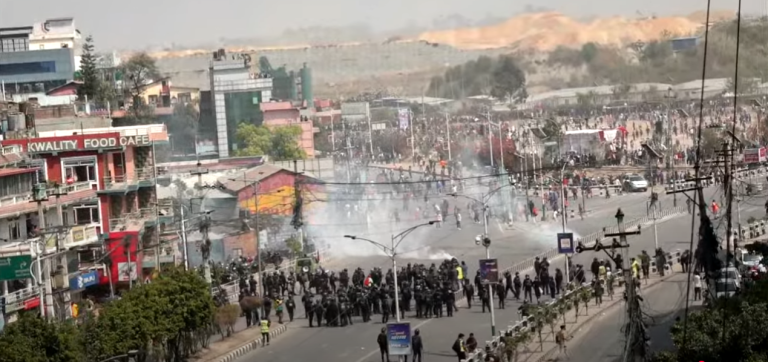Nepal is witnessing a fresh wave of debate over its political future. The country is once again divided between supporters of democracy and those calling for the return of the monarchy. This debate comes nearly two decades after Nepal peacefully ended the Shah dynasty’s rule in 2007 and became a federal democratic republic.
The transition was a historic moment. King Gyanendra Shah stepped down without resistance, ending centuries of royal rule. The people embraced democracy, hoping for a better, fairer nation. But years later, frustration has grown over poor governance, unfulfilled promises, and political instability.
Democracy’s Rocky Road Since 2007
After the monarchy ended, Nepal adopted a republican system. At first, this move was widely welcomed. However, political parties struggled to keep the trust of the public. Many people became disappointed with the new leadership, citing broken promises and weak leadership.
A major issue has been the creation of an oversized, expensive, and often ineffective government system. Nepal’s socialist-leaning constitution also brought economic challenges. This has slowed down development and left many needs unmet.
Federalism was introduced to spread power to local governments. But in practice, the central government kept control. This created overlapping duties and financial problems for both local and federal levels. With limited resources, it has been impossible to meet the high promises made during elections. This gap between promise and reality fueled public frustration.
Misinformation and the Rise of Pro-Monarchy Voices
The rise of social media has played a role in spreading false information and stirring public doubts. Many Nepalis, without access to reliable news, have been swayed by misleading content. This confusion has helped monarchist voices gain support.
Some pro-monarchy activists suggest bringing back a “democratic monarchy” under former King Gyanendra Shah. But this idea holds little ground. Most citizens who value freedom reject the idea of reinstating royal rule.
History offers many examples. In Denmark, King Christian X tried to dismiss his government in 1920. Protests forced him to back down. In Belgium, King Leopold III faced exile for refusing to follow democratic rules. These cases show that absolute power is no longer accepted in modern societies.
The Shah Dynasty’s History of Power Grabs
Nepal’s royal history is filled with power struggles. The Shah kings often sought total control, limiting people’s freedoms. In 2005, King Gyanendra staged a coup, taking full control of the government. This followed earlier moves by King Mahendra in 1960, who dissolved democracy and ruled alone.
Even during King Birendra’s time, the monarchy held tight control under the Panchayat system. Experts widely agree that the Shah dynasty resisted democratic reforms at every turn.
Scandals also hurt the monarchy’s image. From the tragic royal massacre in 2001 to allegations against Prince Paras Shah, the palace’s reputation suffered. These events weakened public faith in the royal family.
Why Going Back to Monarchy Won’t Work
Nepal’s monarchy was known for being corrupt, repressive, and autocratic. Citizens had no freedom to voice opinions or demand rights. Despite frustration with today’s politicians, returning to this system would be a step backward.
Pro-monarchy campaigns have slowed Nepal’s progress. Political figures like Rabindra Mishra, Rajendra Lingden, and Kamal Thapa have been accused of using royalist sentiment for personal gain. These leaders enjoy influence whether the country is a monarchy or a democracy. Their priority is power — not public welfare.
Restoring the monarchy would not fix Nepal’s economic or political issues. The country needs better governance, transparency, and leaders who prioritize the people.
The Path Forward: Strengthening Democracy
Most Nepalis want a peaceful, prosperous country. They seek quality education, healthcare, public safety, and honest leadership. Yes, there are serious problems — from corruption to unemployment. But these can only be solved by improving democratic institutions, not replacing them with autocratic rule.
Nepal’s future depends on a united effort to build strong, accountable governance. Strengthening federalism, improving public services, and promoting fair elections are key. History has shown that inherited power only limits freedom and slows progress.


